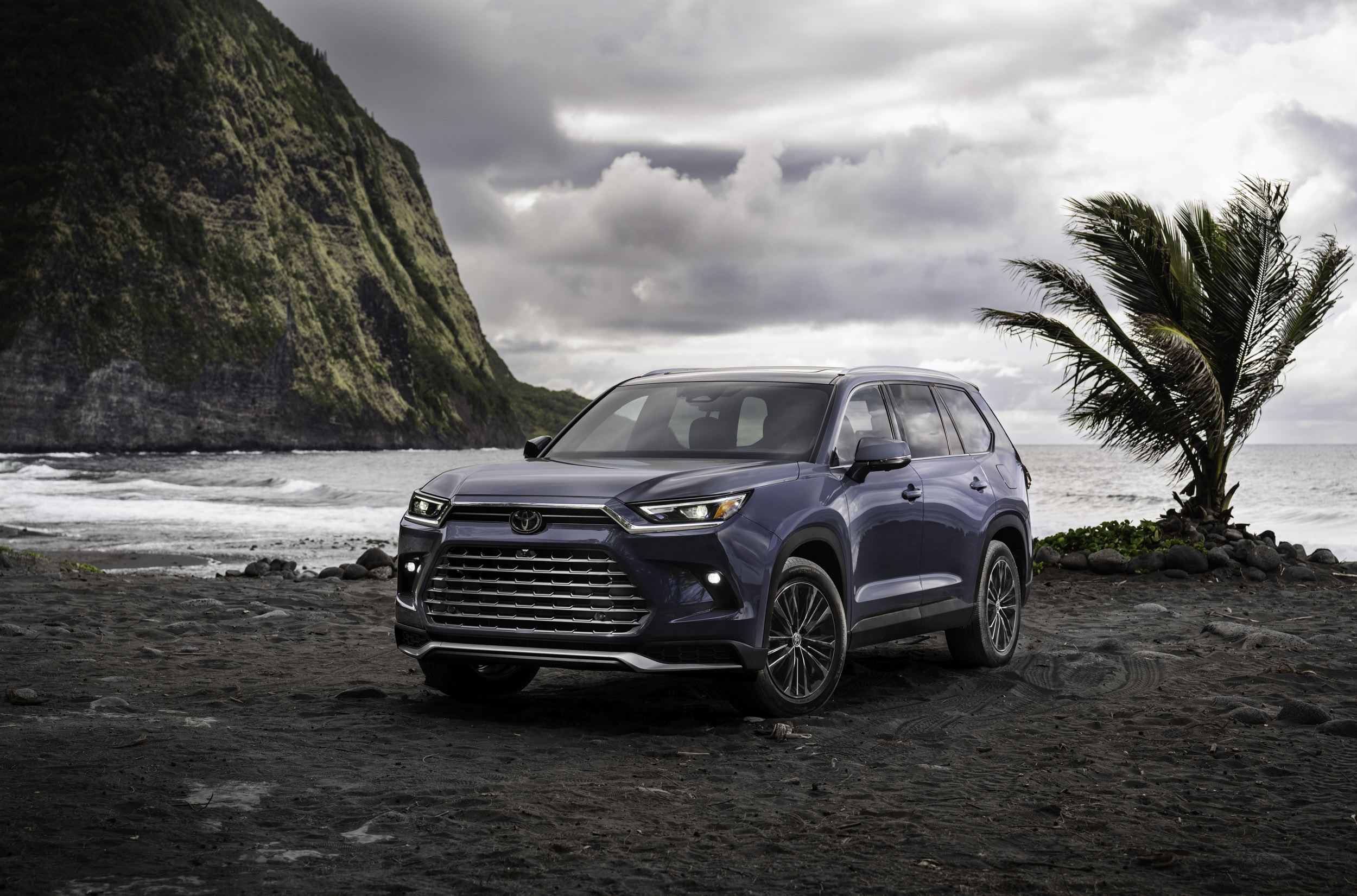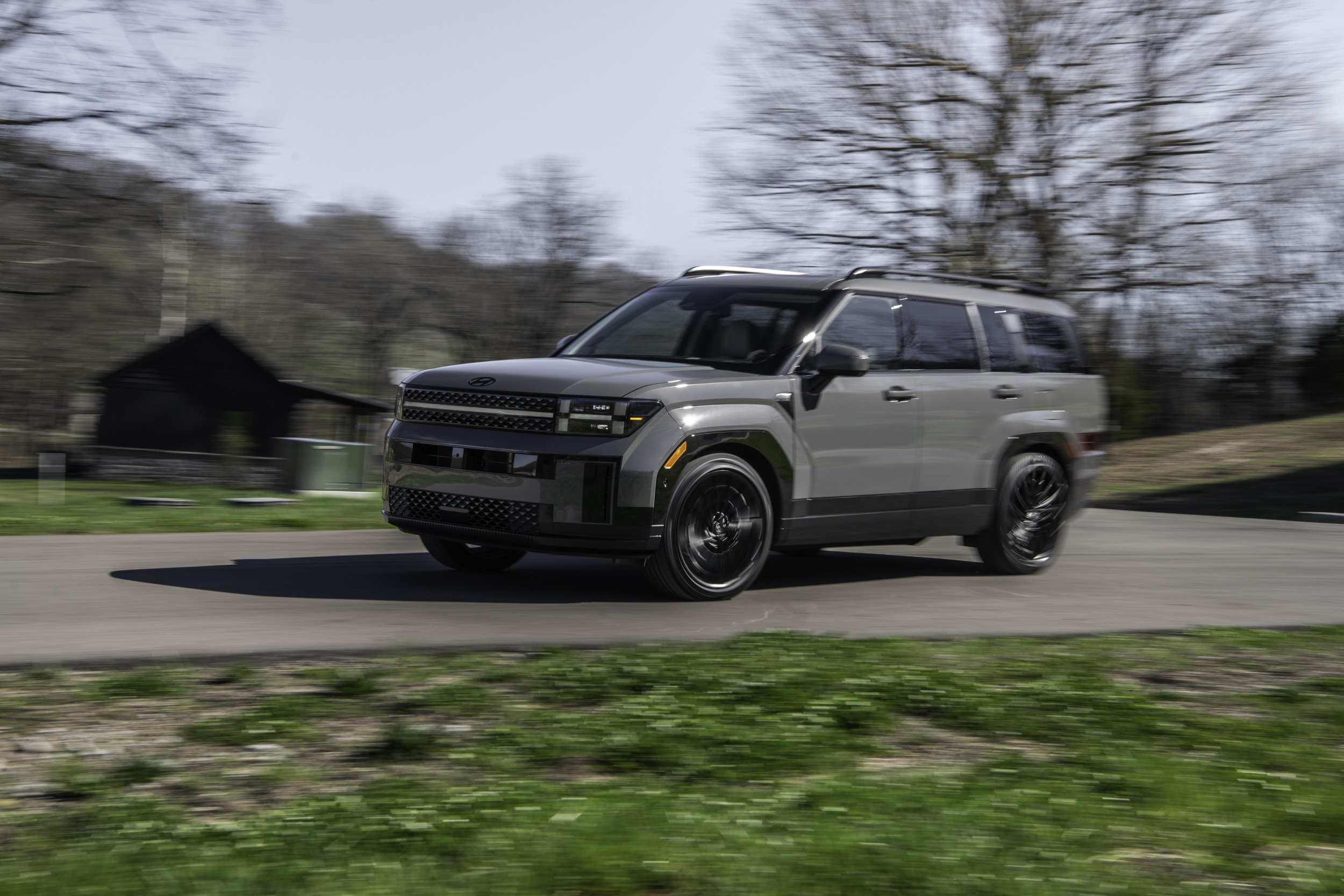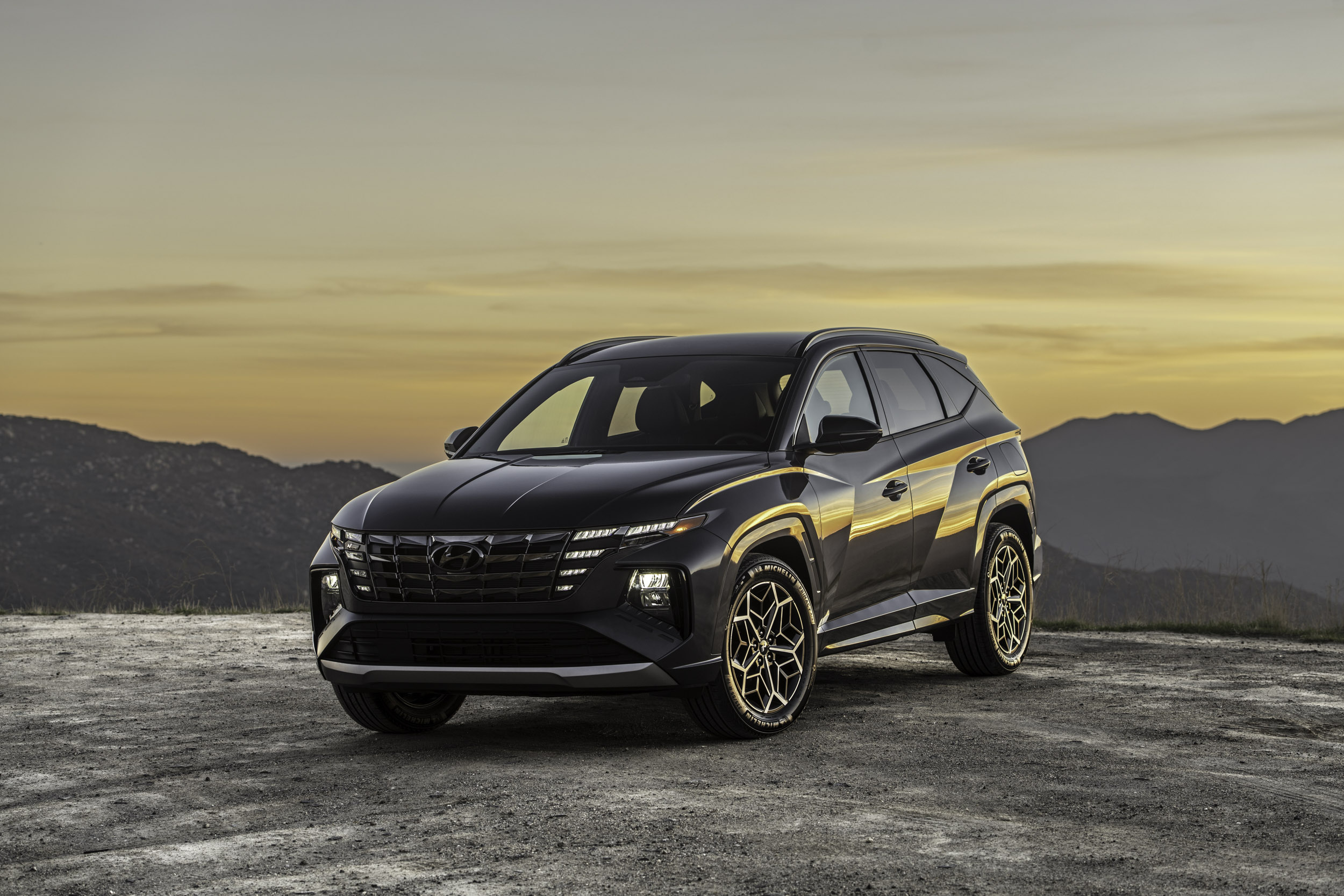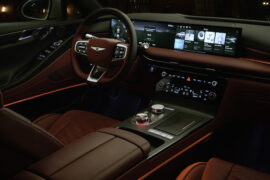Though the Grand Highlander and Highlander share a lineage, their designs carve out distinct identities. With the Grand Highlander adding 6.5 inches in length, 2.3 inches in width, and standing 2.0 inches taller, it establishes a bolder silhouette. The Grand Highlander’s smooth body sides, boxier fenders, and subdued front end create a more refined aesthetic, unlike the Highlander, which leans into a swooping, almost van-like style inspired by the Sienna.
The Grand Highlander’s front features a sophisticated six-sided grille, bordered by fog lights, with a chrome strip that neatly frames its LED headlights and DRLs. The hood rises subtly and spreads wide towards the windshield, offering a confident stance. Meanwhile, the Highlander’s front design feels more segmented, with upper and lower grilles of similar proportions and sharper lines along its body, giving it a slightly edgier look that stands apart from the Grand Highlander’s smoother profile.
The Grand Highlander’s blocky fenders and clean side panels create a sleek, uninterrupted flow to the rear. A subtle beltline rise near the rear quarter windows adds visibility for back-seat passengers. Inside, both SUVs make good use of space with various storage areas, including a tiered dashboard with a handy passenger shelf for phones just above the glove box.
Bronze accents decorate the dash and console in both vehicles, but the Grand Highlander’s recent design adds a fresh twist, including an open bridge console for even more storage, a deep compartment with a sliding door between armrests, and a compact electronic gear shifter that frees up room compared to the Highlander’s traditional mechanical shifter.
The Grand Highlander’s 12.3-inch touchscreen is seamlessly built into the dash, giving it a refined look that doesn’t distract. By comparison, the Highlander’s screen, though functional, feels more like an add-on. However, the Highlander scores a point with its wireless charging pad conveniently located under the vents, while the Grand Highlander’s charging pad, positioned at the base of the console, is slightly less accessible.
PERFORMANCE
The Grand Highlander features an exclusive Hybrid Max powertrain with a 2.4-liter turbocharged inline-4 engine and two electric motors for both axles. This setup, paired with a 6-speed automatic transmission, delivers 362 horsepower and 400 lb-ft of torque. Initially introduced in the Toyota Crown, this powertrain also enhances performance in models like the Toyota Tundra and Lexus RX 500h, balancing power and efficiency.
With the Hybrid Max powertrain, the Grand Highlander achieves impressive performance, accelerating from 0-60 mph in just 6.3 seconds. Sport mode enhances driving dynamics, transforming the calm cabin into a thrilling environment. In this mode, the all-wheel-drive system shifts from a 70:30 to a 20:80 front-to-rear torque split for a rear-wheel-drive feel. The engine note deepens, mimicking a V-6, effortlessly moving its 4,920-pound frame.
Independent suspension in the Grand Highlander smooths out road imperfections, providing a more comfortable ride for families and passengers prone to motion sickness. Some body lean is noticeable in corners but remains well-contained, complementing the vehicle’s tall stance. Models equipped with optional 20-inch wheels, like our test vehicle, exhibit composed handling, striking a satisfying balance between stability and agility for an enjoyable driving experience.
Steering begins with a lighter feel but firms up nicely when turning, drawing comparisons to the Sienna minivan. While it can drift slightly off-center on the highway, only minor corrections are needed to maintain a steady course, making it easy to handle even on longer trips. Overall, the Grand Highlander Hybrid Max delivers a versatile blend of power and comfort, suitable for families and adventurous drivers alike.
VERDICT
The 2024 Toyota Grand Highlander 4WD Platinum, which we had the chance to test drive for a week, carries an MSRP of $58,125. After including all applicable fees, the final price comes to $59,878.
Competition
The 2025 Toyota Highlander makes a strong case for those seeking a three-row SUV with options, offering two body styles and three powertrains to fit various needs. It stands out as a family-friendly choice for drivers who want more room than a standard SUV but aren’t drawn to the extra space of the Sienna minivan or the rugged, truck-based Sequoia.
Jeep’s Grand Cherokee brings its own versatility to the table with the long-wheelbase L configuration for extra passenger room and a plug-in hybrid option, though the latter sacrifices a third row for improved fuel economy. The Kia Telluride continues to win praise, packaging style, practicality, and value in a way that appeals to a wide range of buyers.
For those who want a sportier drive, Ford’s Explorer offers the high-powered ST model with 400 horsepower, delivering a dynamic performance for an SUV. Honda’s Pilot, meanwhile, emphasizes tech and interior space, though it falls slightly short in fuel efficiency compared to other models in its class.





